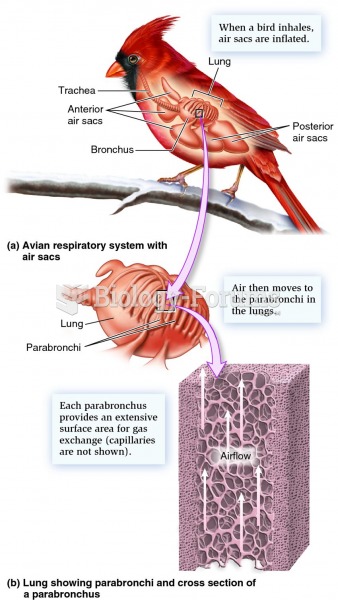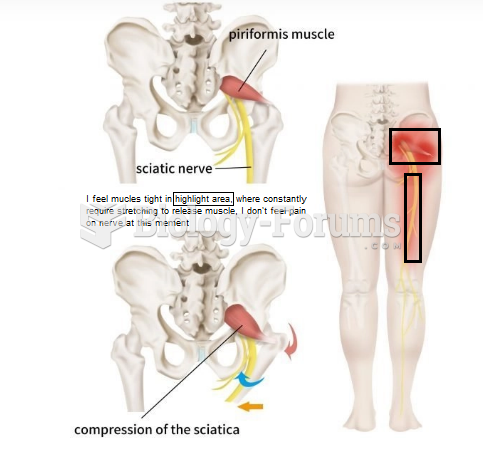Answer to Question 1
Ans: B, C, D
Feedback:
To prevent the transmission of all respiratory infections, respiratory hygiene/cough etiquette measures should be implemented at the first point of contact with a potentially infected person and should be incorporated into standard precautions. This includes covering the nose and mouth when coughing or sneezing, using tissues to contain respiratory secretions and disposing of them in the nearest waste receptacle after use, and hand hygiene (e.g., handwashing with nonantimicrobial soap and water, an alcohol-based hand rub, or an antiseptic hand wash) after having contact with respiratory secretions and contaminated objects/materials. In addition to standard precautions, all individuals, including visitors and healthcare providers, in contact with clients with an acute respiratory infection should use droplet precautions, which include wearing a surgical mask when in close contact (i.e., within approximately 3 feet) and on entering the room of the client. The 2013 World Health Organization guidelines for a suspected or confirmed case of MERS-CoV infection called for placing the client in a single isolation room with equal or greater than 12 air exchanges per hour, not quarantining infected families in their homes. Contact precautions are only needed when contact with blood, body fluids, secretions, or nonintact skin is anticipated.
Answer to Question 2
Ans: B
Feedback:
The main lessons learned from SARS, the first new infectious disease to emerge in the 21st century, were that (1) astute healthcare providers are likely to be the key to early detection and reporting of initial cases of SARS-coronavirus disease, (2) containment of disease requires the diligent application of enhanced infection control measures at the national and local levels, the same measures that will defeat SARS should it reemerge, and (3) control of an emerging infection necessitates swift action by healthcare providers as well as an adequate public health infrastructure. Prophylactic antibiotics would not be effective against a virus. Use of alcohol cleansers would not be as effective as full, enhanced infection control measures. Reporting clusters to the Centers for Disease Control and Prevention can help in the early detection of the disease, but in and of itself will not help contain it.







